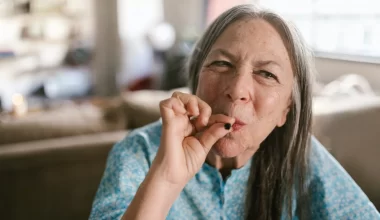A former Republican congressman has joined the board of a psychedelics advocacy group working to reform federal policies around entheogenic plants and fungi like psilocybin.
Former Rep. Ryan Costello, who represented Pennsylvania in Congress from 2015 to 2019, is now part of the newly renamed Psychedelic Medicine Coalition (PMC), which was previously called the Plant Medicine Coalition.
Beyond the name change and new additions to the board, PMC also announced on Thursday that it will be hosting its first annual National Psychedelic Policy Roundtable on January 26. The event will “bring together researchers, practitioners, and policymakers working in the psychedelic medicine space to lay out the future of psychedelic policy in our nation’s capital,” according to a press release.
The news of Costello joining PMC’s board is especially interesting. But while it might strike some as surprising that a former GOP congressman would be working on an issue more commonly associated with a progressive agenda, Costello has a record of championing drug policy reform, including while he was in office.
The congressman cosponsored a variety of marijuana-related bills—including ones to shield states that legalize cannabis from federal interference—and supported several reform amendments on Capitol Hill.
It was also announced last summer that Costello had joined the multi-state cannabis businesses Red White & Bloom Brands Inc. (RWB) in a consulting capacity. He’s not the first former member of Congress to enter the cannabis space, but he’s a rare example of someone who actually worked to advance the issue while he was in power before making that transition. Others, such as former House Speaker John Boehner (R-OH), opposed reform while in office before leaving and then joining the industry.
In any case, the announcement from PMC signals that the organization is gearing up for an active year on the psychedelics front.
“Our mission remains the same and is more important than ever: to create, protect, and promote safe and equitable access to natural and synthetic psychedelic and plant medicines,” Melissa Lavasani, founder and executive director of PMC, said.
“I felt this name change was necessary in to reflect both the diverse coalition we have built over the last year and the leap in public awareness regarding the healing potential of psychedelic and plant medicines,” said Melissa Lavasani, Founder & Executive Director pic.twitter.com/1uOenuJ4Wx
— Psychedelic Medicine Coalition (@PMCinDC) January 6, 2022
She said that the group’s name change “was necessary in order to properly reflect both the diverse coalition we have built over the last year, as well as the leap in public awareness regarding the healing potential of psychedelic medicines.”
“We are continuing to educate Congress and the Administration as we fight for funding for research for psychedelics and plant medicines,” Lavasani said.
In addition to Costello, PMC announced that Tom Zuber of Zuber Lawler and Joe Moore of Psychedelics Today are also joining its board.
PMC also named advisory board founding members that include Dr. Bronner’s CEO and activist David Bronner, Microdose CEO Patrick Moher, Nushama Director of Strategy Julia Mirer, Green Horizon CEO Los Arias and Pure Vitality Center owner Kelly Bender.
PMC—founded by the head of the D.C. campaign that got psychedelics decriminalization passed locally in the 2020 election—also announced late last year that it had issued about $50,000 in its first round of grants for various community groups to support efforts to educate and organize people around plant medicine.
While Congress has yet to end marijuana prohibition, psychedelics reform is gradually gaining attention in the nation’s capital.
For example, a congressman recently started asking his fellow lawmakers to join him in requesting that the Drug Enforcement Administration (DEA) allow terminally ill patients to use psilocybin as an investigational treatment without the fear of federal prosecution.
A Dear Colleague letter that’s being circulated by Rep. Earl Blumenauer (D-OR) notes that there are state and federal right-to-try (RTT) laws that should make it so certain patients can obtain the psychedelic given that it’s shown early potential in ongoing clinical trials.
Yet DEA has denied access, resulting in a lawsuit that was filed in March by a Washington State doctor who sought federal guidance to treat terminal patients with psilocybin mushrooms and was told there wasn’t a legal avenue for him to do so.
The lawsuit against DEA is currently before the U.S. Court of Appeals for the Ninth Circuit, which heard oral arguments in the case in September. Washington State’s attorney general’s office joined the plaintiffs in support of psilocybin access. DEA argued that the court should dismiss the suit because it lacked jurisdiction.
Blumenauer separately told Marijuana Moment last month that he’s “excited” about advancements in psychedelics research, as well as the implementation of a psilocybin therapy program that’s being set up in his home state of Oregon, where voters approved the historic reform during last year’s election.
Republican lawmakers in the House and Senate also introduced legislation late last month that would make it easier for scientists to research Schedule I drugs like marijuana and psilocybin.
—
Marijuana Moment is already tracking more than 800 cannabis, psychedelics and drug policy bills in state legislatures and Congress this year. Patreon supporters pledging at least $25/month get access to our interactive maps, charts and hearing calendar so they don’t miss any developments.![]()
Learn more about our marijuana bill tracker and become a supporter on Patreon to get access.
—
DEA has repeatedly proposed significant increases in the production of marijuana, psilocybin and other psychedelics for research purposes, with the intent of aiding in the development of new federally approved therapeutic medications.
NIDA Director Nora Volkow told Marijuana Moment in a recent interview that she was encouraged by DEA’s prior proposed increase in drug production quota. She also said that studies demonstrating the therapeutic benefits of psychedelics could be leading more people to experiment with substances like psilocybin.
Psilocybin Services Would Be Legalized In Washington State Under New Bill
Photo courtesy of Dick Culbert.
Medical Disclaimer:
The information provided in these blog posts is intended for general informational and educational purposes only. It is not a substitute for professional medical advice, diagnosis, or treatment. Always seek the advice of your physician or other qualified healthcare provider with any questions you may have regarding a medical condition. The use of any information provided in these blog posts is solely at your own risk. The authors and the website do not recommend or endorse any specific products, treatments, or procedures mentioned. Reliance on any information in these blog posts is solely at your own discretion.







